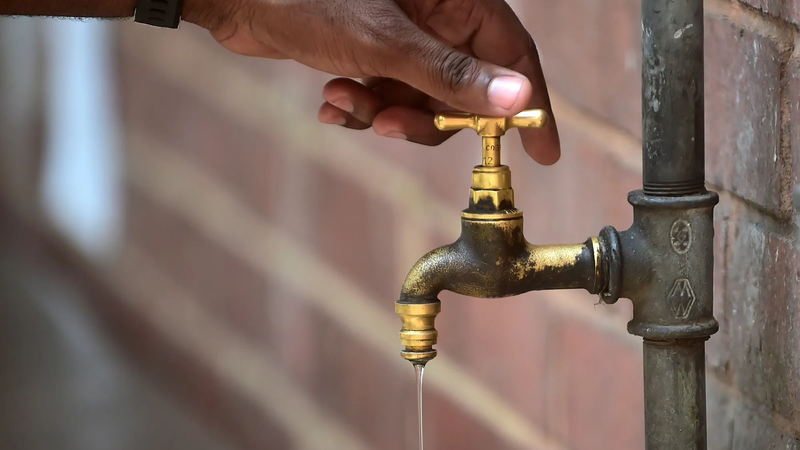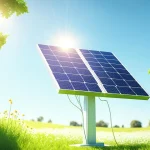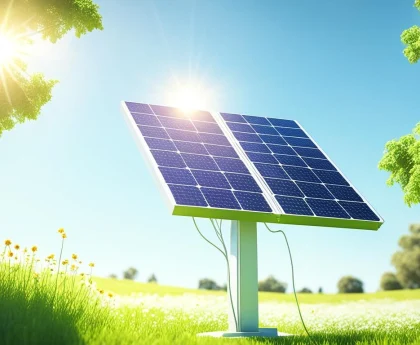Solar water pumps are emerging as a powerful tool to address water scarcity in South Africa, where water resources are under severe pressure due to droughts, over-extraction, and climate change. South Africa’s semi-arid climate, coupled with uneven water distribution, makes sustainable water solutions critical. Solar water pumps offer a renewable, cost-effective method to mitigate water shortages, particularly in rural and off-grid areas.
Water Scarcity in South Africa: Key Challenges
- Climate Change and Droughts:
- Prolonged droughts, such as the “Day Zero” crisis in Cape Town (2018), have highlighted water vulnerability.
- Reduced rainfall affects both surface and groundwater sources.
- Overuse of Water Resources:
- Agricultural, industrial, and domestic demands often exceed the available supply.
- Inefficient irrigation methods in farming exacerbate water wastage.
- Poor Infrastructure:
- Many rural areas lack access to reliable water supply systems.
- Aging infrastructure leads to significant water loss through leaks and inefficiencies.
- Population Growth:
- Increasing demand for water due to urbanization and population growth intensifies scarcity.
- Energy Access Issues:
- Rural communities often lack access to grid electricity, limiting water extraction and delivery.
How Solar Water Pumps Can Help
- Sustainable Water Access:
- Solar water pumps harness sunlight to extract water from underground aquifers, rivers, or reservoirs.
- They can operate without reliance on grid electricity or diesel fuel, reducing operational costs.
- Applications in Agriculture:
- Solar pumps can transform irrigation in farming, which accounts for nearly 60% of South Africa’s water usage.
- Efficient irrigation methods like drip or sprinkler systems powered by solar pumps minimize water waste.
- Reliable Water Supply for Communities:
- In rural areas, solar pumps can deliver clean drinking water from deep wells or surface sources.
- Reduces the burden on women and children who often fetch water from distant locations.
- Mitigating Drought Impacts:
- During dry seasons, solar pumps ensure a continuous supply of water for irrigation and livestock, improving food security.
- Decentralized Water Solutions:
- Solar water pumps enable localized water management, reducing dependence on central infrastructure.
- They empower communities to manage their own water resources sustainably.
Advantages of Solar Water Pumps for South Africa
- Eco-Friendly:
- Operate on renewable solar energy, reducing carbon emissions and reliance on fossil fuels.
- Cost-Effective:
- No ongoing fuel costs or significant electricity bills.
- Low maintenance requirements make them affordable over the long term.
- Energy Independence:
- Ideal for rural and off-grid areas, where grid power is unreliable or unavailable.
- Scalability:
- Suitable for small-scale farms, community water projects, or large-scale agricultural operations.
- Water Efficiency:
- When combined with modern irrigation techniques, solar pumps optimize water usage, crucial in a water-scarce region.
Limitations and Challenges
- Initial Investment:
- Solar water pump systems can have a high upfront cost. Solution:
- Government subsidies, grants, and financing schemes can make them more accessible.
- Solar water pump systems can have a high upfront cost. Solution:
- Sunlight Dependency:
- Solar pumps rely on adequate sunlight for optimal performance. Solution:
- Use battery storage or hybrid systems (solar + diesel/grid) for backup.
- Solar pumps rely on adequate sunlight for optimal performance. Solution:
- Maintenance Knowledge:
- Some rural communities may lack the expertise to maintain solar systems. Solution:
- Establish local training programs and maintenance hubs.
- Some rural communities may lack the expertise to maintain solar systems. Solution:
- Groundwater Depletion:
- Over-reliance on groundwater pumping can deplete aquifers. Solution:
- Implement water management strategies, including recharging aquifers and monitoring usage.
- Over-reliance on groundwater pumping can deplete aquifers. Solution:
Case Studies and Impact
- Agricultural Success Stories:
- Farmers in Limpopo and Eastern Cape have adopted solar water pumps to irrigate crops, reducing reliance on rain-fed agriculture.
- Transitioning to solar-powered drip irrigation has significantly improved crop yields and water efficiency.
- Community Water Projects:
- Solar pumps are providing drinking water to rural communities in KwaZulu-Natal and the Northern Cape, reducing health risks from unsafe water sources.
- Livestock Farming:
- In arid regions like the Karoo, solar water pumps ensure reliable water supply for livestock, supporting the livelihoods of local farmers.
- Drought Mitigation:
- During recent droughts, solar water pumps helped sustain water supply for critical agricultural and domestic needs.
Policy and Support
- Government Initiatives:
- Programs like South Africa’s Renewable Energy Independent Power Producer Procurement Programme (REIPPPP) promote renewable energy solutions, including solar water pumps.
- Subsidies and grants for solar systems are available through agricultural support programs.
- NGO and Private Sector Support:
- Organizations like the World Bank, UNDP, and private companies are funding solar water pump installations in rural areas.
- Community Engagement:
- Training local communities in operating and maintaining solar systems ensures long-term sustainability.





